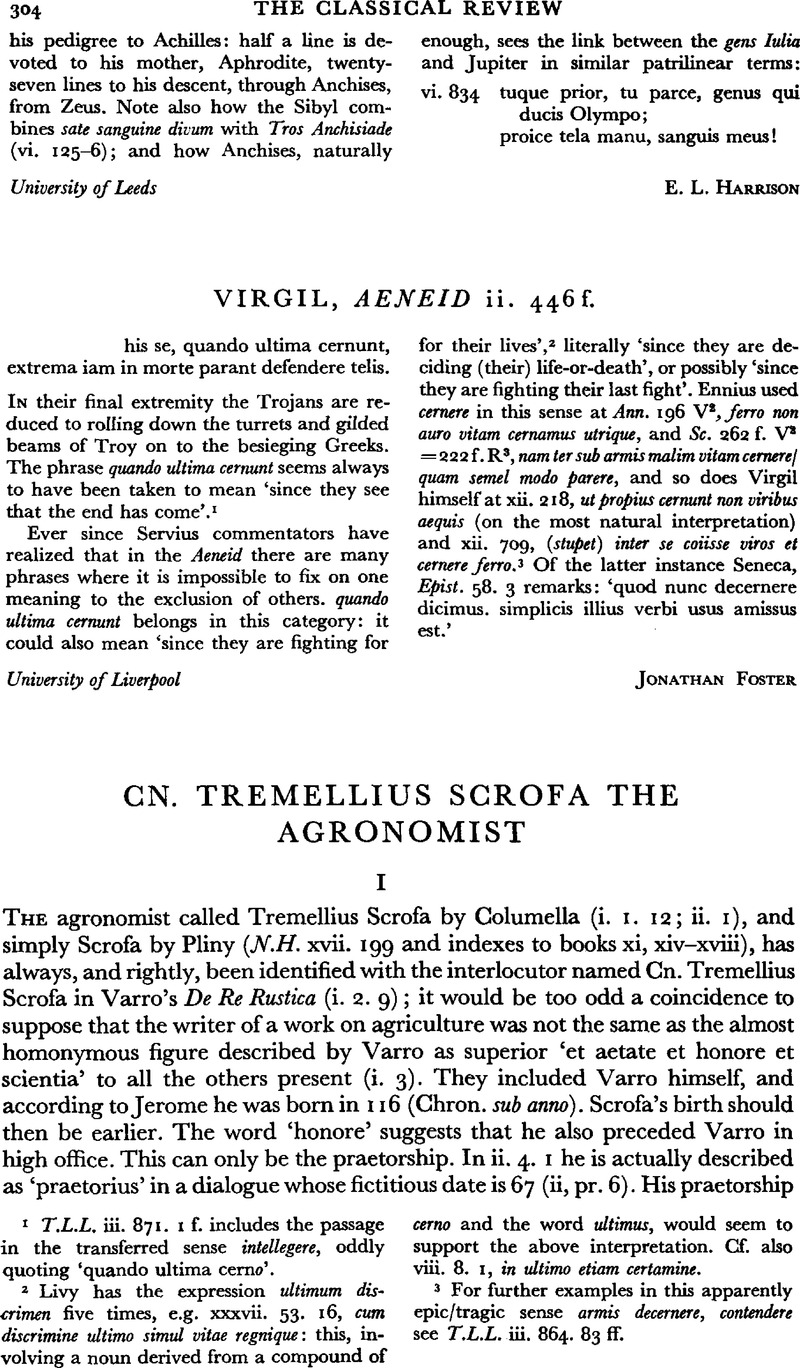No CrossRef data available.
Article contents
Virgil, Aeneid ii. 446f
Published online by Cambridge University Press: 27 February 2009
Abstract

- Type
- Review Article
- Information
- Copyright
- Copyright © The Classical Association 1972
References
1 T.L.L. iii. 871. if. includes the passage in the transferred sense intellegere, oddly quoting ‘quando ultima cerno’.
2 Livy has the expression ultimum discrimen five times, e.g. xxxvii. 53. 16, cum discrimine ultimo simul vitae regnique:this, involving a noun derived from a compound of cerno and the word ultimus, would seem support the above interpretation. Cf. also viii. 8. 1, in ultimo etiam certamine.
3 For further examples in this apparently epic/tragic sense armis decernere, contendere see T.L.L. iii. 864. 83 ff.


